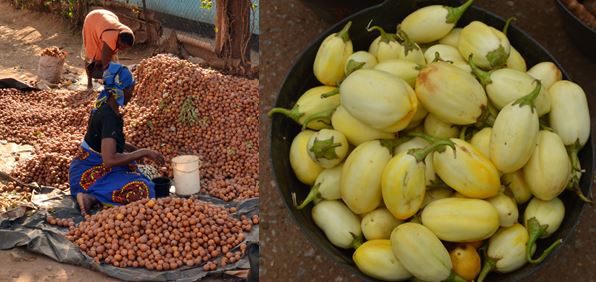An African framework for commercializing indigenous food is long overdue
As part of combatting the negative effects of pandemics such as COVID19 and distant wars on food systems, African countries have to develop frameworks for commercializing indigenous grains, fruits, vegetables and livestock. There is no longer any doubt that depending on global value chains makes African countries vulnerable to international market forces. For instance, the Russia-Ukraine conflict is already causing shock waves among African countries that have been relying Russia and Ukraine for maize, wheat and other commodities.

Opportunities within indigenous food
In most African market the bulky of indigenous grains, tubers, fruits and many other foods are often sold are raw products. However, there is enormous scope to add value to these commodities and identify several low-hanging opportunities. For example, already we see are lot of valued added baobab fruit products like yoghurt, ice-cream and others. Urban consumers should not be the only ones enjoying baobab fruit yoghurt and other related products at the expense of rural communities which are the major sources of the fruit.
Pathways for building the capacity of local communities to preserve and benefit from their fruits, most of which are seasonal, can include the following steps:
Participatory mapping of existing natural resources, food including fruits. Mapping is important because the foods and fruits exist in communities with diverse sources of income.
Mapping of indigenous knowledge systems – this is critical in surfacing a lot of indigenous knowledge associated with indigenous food systems. Key insights to be gleaned include how to tap into existing indigenous knowledge in terms of value addition and other benefits which communities know. For instance, local people may not know about micronutrient in food such as calcium and zinc but they know the benefits associated with their indigenous fruits. Such knowledge can assist in commercializing food systems in ways that also preserve and enhance indigenous knowledge systems. This is a unique selling proposition in itself.
Value addition – This remains unexplored.
Developing a Unique Selling Proposition for indigenous food. An example can be using the nutrition components of indigenous foods as a unique selling proposition. It has taken Africans very long to think about expressing the uniqueness of their indigenous fruits and use them for marketing indigenous food.
Gender – indigenous fruits and women. This could be another very important angle because indigenous food systems have a strong gender dimension.
Propagation – This entails intensive production of indigenous food including fruits that are currently ignored as most Africans embrace exotic fruits that are being planted in gardens and orchards at the expense of indigenous fruit trees.
Reaching up-markets – This is about seeking answers to questions like: How do we create space for indigenous food and fruits in existing formal and informal markets?
Global marketing strategy – This will ride on digital solutions through creating knowledge centres at local community levels and linking these with global markets. Knowledge centres will enable people in the diaspora to see what is being offered by communities in terms of diversity and quantities.
Developing business models around indigenous foods – This is a very important stage that will ensure sustainability. Commercializing indigenous fruits as a project is different from individual projects by individual farmers because fruits are a common pool resource which benefits many people who may not be part of particular projects. A key question to answer is: What type of business models are we going to set up for common pool resources without creating social problems?
Technical aspect – This focuses on technology needed to process and preserve indigenous food and fruits. It includes training and capacity building which also recognizes existing indigenous knowledge. Currently, some indigenous foods are exhibited at agricultural shows and trade fairs but there is no extensive commercialization which can benefit the majority.
charles@knowledgetransafrica.com / charles@emkambo.co.zw / info@knowledgetransafrica.com
Website: www.emkambo.co.zw / www.knowledgetransafrica.com
Mobile: 0772 137 717/ 0774 430 309/ 0712 737 430
